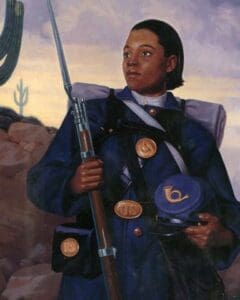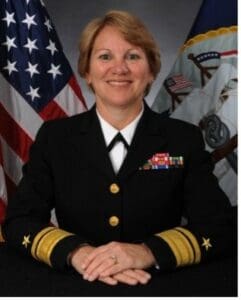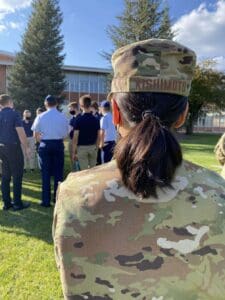
Cathay is my girl! Her story makes me giddy. She was invited to serve the army in a way that was “appropriate” to a woman’s role – a cook for male soldiers, but she figured out a way to show that service, bravery and combat is not just a man’s job. If you think women recently showed up on the front lines, then you have to meet Pt. Cathay Williams, the first black woman to enlist – except that she enlisted under a male pseudonym in 1866. It took two years and a sickness before she was found out. Women have served as military surgeons, nurses, intelligence officers, pilots, commanding officers, and Rangers throughout the history of our nation. Learn more about Pt. Williams and seven other game-changers in U.S. military history.
The path to break down gender and racial barriers is complicated and not always clear. Systemic bias is a tight web of self-protective relationships that protect the status quo. Many times, addressing systemic bias can feel like an attack on an organization’s heritage. How work has been done and decisions have traditionally been made is not mission centric though, but more about the social perspectives that we adopt as a community. Let’s take the U.S. armed forces. Do you immediately think about women when you hear the word soldier? Probably not, unless your wife, your mother or your daughter has served or is actively serving.
While the mission of the U.S. military has historically been delivered by both brave men and women, serving in critical capacities from combat, to security, to peace missions and medical roles, equitable access has been a long-standing battle. Women in this country have taken their fight all the way up to the U.S. Supreme Court to be able to serve their country.
Women make up approximately 16.5% of the armed forces, an increase of only 1.4% over the past fourteen years, per the 2020 report of the U.S. Government Accountability Office (GAO). Better analysis is needed to understand this flatlining, but there are three matters of note that are counterintuitive to gender-equity in the U.S. armed forces. First, the GAO report finds that the Department of Defense (DoD) does not have guidance or plans in its efforts to recruit and retain women. Secondly, among the top six reasons noted by women for their separation from the military includes sexual assaults – an unresolved tragedy.

Then there is that pesky issue of gender politics. In March of this year, President Biden announced two senior military leaders who would become only the second and third women to “hold such senior military positions in the United States.” Representation in the top tier of leadership is sorely lacking.
Today, I want to encourage us to share the name of a woman leading in education, who is currently serving or has fulfilled military service. My shout out goes to two star retired Rear Admiral, Dr. Cindy Covell who joined my team at the Hawaii State Department of Education as the Assistant Superintendent of Talent Management, after 34 years of service in the U.S. Navy. It was a great personal honor to have her as a Cabinet member, colleague and now friend.
Our students, especially our young girls, should know the stories of these great leaders who walk among them. These amazing women are public servants teaching and leading in education, while also holding the distinct honor of being veterans. These teachers and leaders are a testimony that women have never avoided the difficult work of service and sacrifice, even if they have not always been thanked.
Thursday, November 11, 2021 is Veteran’s Day. Voice4Equity takes this moment to honor ALL veterans for their selfless service, and uses this opportunity to highlight the incredible women who have not waited to be asked, nor waited for permission to serve.
Follow @Voice4Equity and tweet your shout out to a military woman today!


